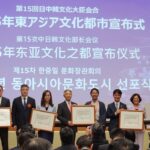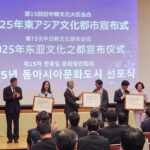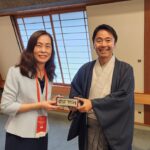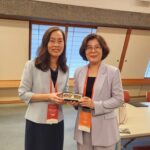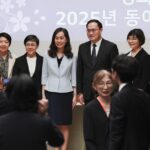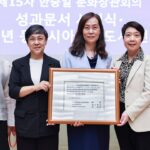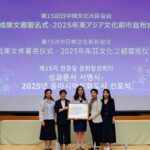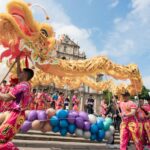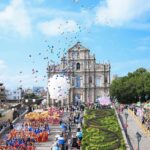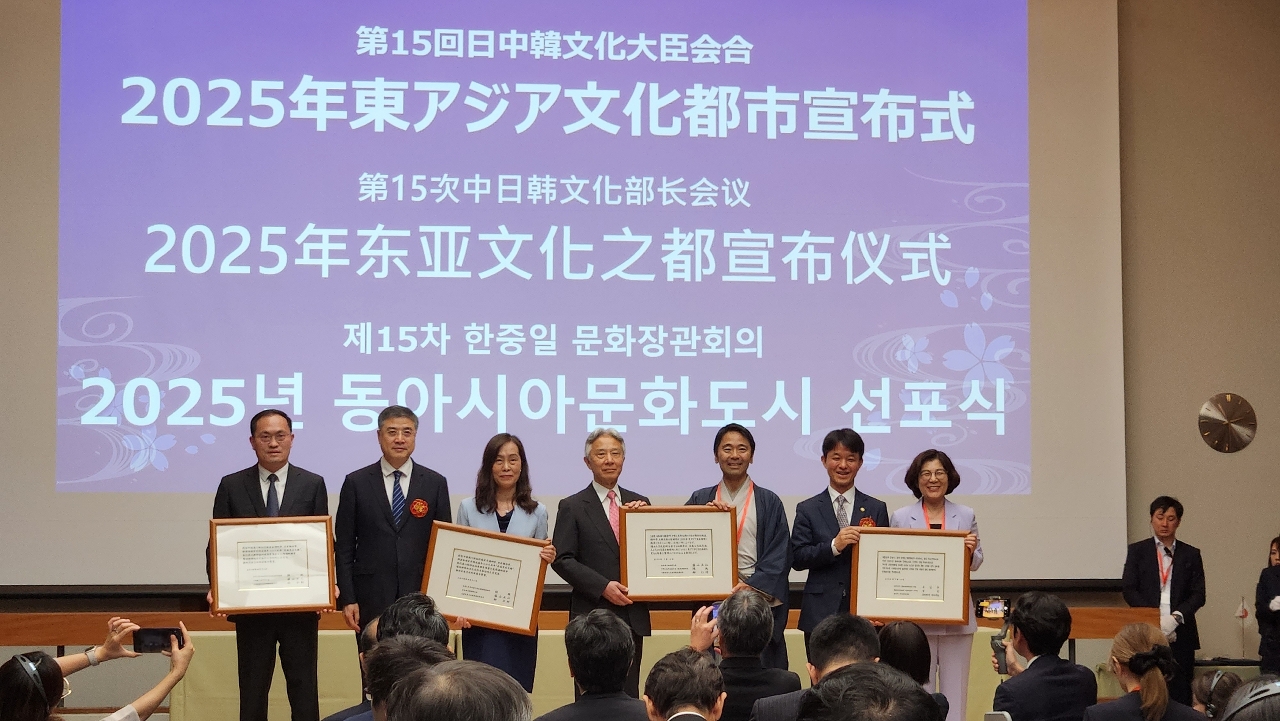 The representatives of the designated cities received the plaque of the title of “Culture City of East Asia 2025”
The representatives of the designated cities received the plaque of the title of “Culture City of East Asia 2025”
The award ceremony of the “Culture City of East Asia 2025” was held today (12 September) in Kyoto, Japan. On behalf of the Macao SAR, the Secretary for Social Affairs and Culture, Ao Ieong U was presented the plaque of Macao as a “Culture City of East Asia 2025”, adding another glittering “gold business card” to Macao as an international metropolis.
The 15th China-Japan-the Republic of Korea Culture Ministers’ Meeting was held on 12 September in Kyoto, Japan, featuring an award ceremony of the “Culture City of East Asia 2025”, where representatives of cultural departments of the three countries awarded the plaque of the designation to the Macao Special Administrative Region (China), Huzhou (China), Anseong (the Republic of Korea) and Kamakura (Japan). Ao Ieong U addressed in her speech that this honour is a recognition of Macao’s efforts in driving local cultural development. As an important node and a trade hub on the bygone Maritime Silk Road, Macao has played an important role in cultural exchange across East Asia. Macao will continue to leverage its advantage as a city featuring the integration of Chinese and Western cultures and of extensive international exchanges. By building itself into a “Culture City of East Asia”, the city will further facilitate and deepen cultural and tourism exchange and collaboration among the three countries, thus contributing toward the expansion of the dialogue between different civilisations in Asia. Through the award ceremony, the designated cities of the three countries discussed and exchanged views for cultural collaboration in the coming years. Following the ceremony, the delegation of representatives from the Macao SAR Government also attended the China-Japan-the Republic of Korea Arts Festival.
Being Macao a “Culture City of East Asia 2025”, the Macao SAR Government will leverage the city’s advantage as an important node in the Belt and Road, strengthening the international cultural and artistic exchange. Under the theme “East- West Encounter, Asia in Harmony”, the Government will organise a series of activities throughout a calendar of events featuring large-scale cultural expos, international conferences, intangible cultural heritage showcases, as well as cultural, sports and tourism events. Moreover, taking the opportunity from the construction of a “Culture City of East Asia 2025”, the Government will further expand Macao’s cultural image, improve the construction of its public cultural service systems and facilities, and fortify its role as “a base for exchange and cooperation with Chinese culture as the mainstream and the coexistence of different cultures” while also facilitating exchanges between Chinese and foreign cultures.
Upholding the spirit of the China-Japan-ROK Trilateral Summit, the “Culture City of East Asia” programme is the first international cultural city designation event in Asia jointly proposed by the three nations, a major cultural achievement among the countries, and a signature cultural collaboration of the East Asia region. The programme aims to realise the three nation’s advantages of profound historical and cultural ties, shared cultural contexts, and similar cultural traditions, while also enhancing the region’s cultural competitiveness on the international stage through exchange and collaborations in the fields of culture, art and tourism.
A delegation of representatives from the Macao SAR Government in the ceremony included the President of the Cultural Affairs Bureau, Leong Wai Man; the Director of the Macao Government Tourism Office, Maria Helena de Senna Fernandes; and the Advisor of the Office of the Secretary for Social Affairs and Culture, Lo Hou Chi, among others.


